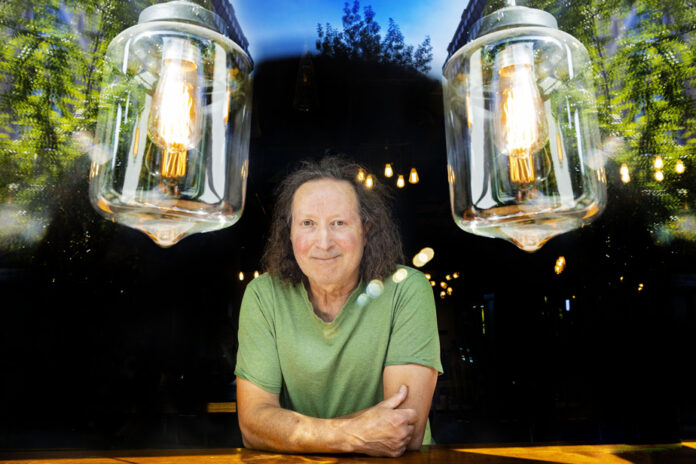There has been a lot written about Thoreau, but to my knowledge, very few novels. He has the figure of a secular holy man in American culture, and my challenge as a novelist was to bring this story to life, to put flesh and blood, to make him a living character. I think I’m the first to dare to give him a penis. Although he was a philosopher and poet, he was a young man of 28. I wanted to give him emotions, sensations. And even romantic and sexual emotions. Thoreau is an icon of American culture and for a Quebecer, there is a considerable challenge in making this character his own. His friendship with a French-Canadian lumberjack called Alex Therrien, which had never been told before, was my common thread and my gateway into his world.
Yes. It is the presence of French and Canadian across America. Because of Therrien, the story of Thoreau also belongs to us, in fact, just as the story of the conquest of the West belongs to us through the presence of trappers like Étienne Provost.
Yes. Like a statue, there were myths to debunk. When Thoreau left to live for two years, two months and two days in his cabin on the shores of Lake Walden, his plan was not, as we think, to live in self-sufficiency. What Thoreau is thinking about is the ecological footprint, the relationship with nature, and the question posed by his masterpiece Walden: what does a man really need to live, basically? He was criticized for going to eat with his friends and family. But he never pretended to cut himself off from the world! He also had quite a few visitors on the edge of the lake. It was not the idea of survival, more a declaration of independence and modesty, which was later called voluntary simplicity.
This is an important milestone, Thoreau’s experience. In 1843 you have Audubon going to the American West. He is an old-fashioned naturalist, whose method of collecting samples is to shoot anything that moves. Two years later, in the East, we have this young man who decides to live in his cabin, who also considers himself a naturalist, and who already has a completely different vision of nature. He will become the precursor of what we could call modern ecological thought. He is probably the first true North American environmentalist.
One important thing, the freedom to think for yourself. Thoreau tells us, among other things, that we must have convictions and be able to defend them. It remains relevant in our time where, in all kinds of more or less insidious ways, we see forms of censorship, self-censorship emerging.
Of course yes… I live in the city now, and I kept this contact with nature through my walks in the forest, and also through my relationship with Thoreau. At first, I didn’t find it easy… An expedition by steamboat, canoe and horseback, like Audubon, is an epic story that is well told. There, I had to recount a largely contemplative stay and it was a writing challenge. We had to accompany the character who walks in the forest, who opens his senses to reality and the nature that surrounds him. Imagine the daydreams running through his head. Compared to our busy world, I envy Thoreau, who could spend hours letting his mind drift while listening to the birds sing.
Yes, and less noise and light pollution. One of the goals of this book, like the one on Audubon, is to connect two eras and to note the path traveled, with the positive and the negative. There are not only disadvantages to living in an advanced society, I don’t want to idealize the past, but my whole idea with this series is to think about our relationship with nature. So the pandemic making an appearance in a book about Thoreau makes sense. The pandemic is somewhat a consequence of the way we occupy the planet, of our ecological footprint which means that a tiny virus was able to spread so easily.
Yes, that’s the next naturalist in my sights. Gray Owl and Jean-Charles Harvey, the journalist and writer, future author of Demi-civilisé. He also had his Quebecois friend!















